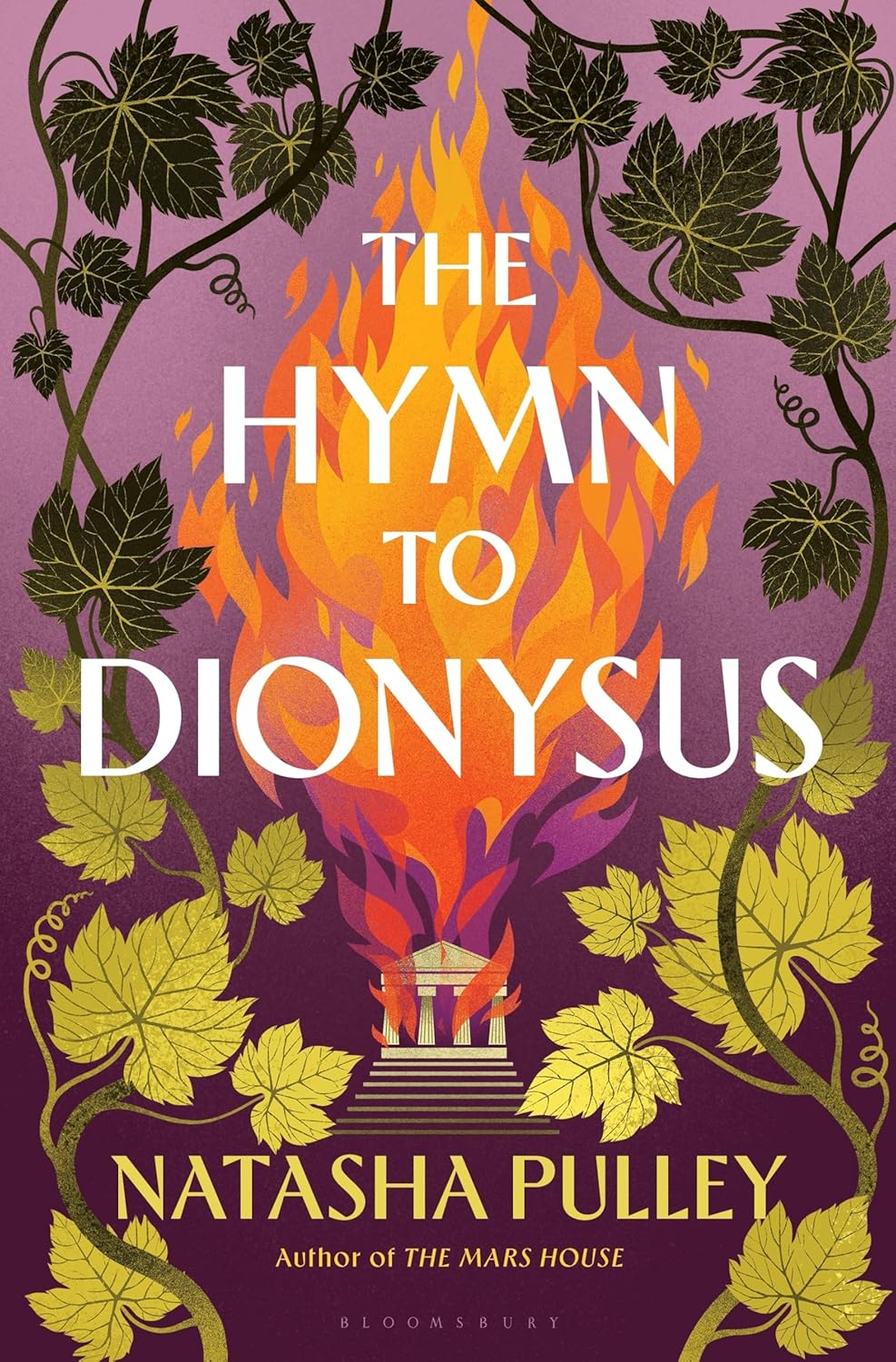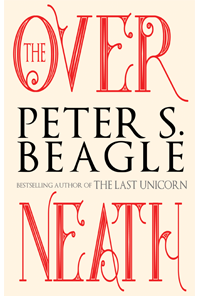The Hymn to Dionysus
- By Natasha Pulley
- Bloomsbury Publishing
- 416 pp.
- Reviewed by Mariko Hewer
- March 26, 2025
The god of pleasure assumes a distinctly human form in this charmingly updated Greek myth.

As a Greek and Roman mythology fan, I’ve watched the increase in retellings (e.g., Madeline Miller’s Circe, Natalie Haynes’ A Thousand Ships, and Claire Heywood’s Daughters of Sparta) with anticipation and joy but never found the right point to dive in myself. The Hymn to Dionysus, Natasha Pulley’s hallucinatory exploration of the god of wine, fertility, pleasure, and madness told through the eyes of a self-deprecating yet heroic mortal had me hooked from the first page.
Phaidros is a deeply broken and traumatized knight of Thebes, having known war since he was small:
“[O]ur commanders hid honey cakes and toys in among the wreckage after the fighting was over, which was why I always loved big battles.”
Sailing home from the Trojan War, Phaidros’ crew picks up an unusual boy they hope to sell into slavery; Phaidros vows instead to protect the child but proves an ineffective ally. In the end, it is the crew who needs rescuing from some unusual infant antics before the boy disappears. Phaidros escapes unharmed — albeit with the certainty that the youngster will one day turn up to avenge himself on the unhelpful knight.
Years later, back in Thebes, Phaidros is a commander of “little knights” himself, suffering from the trauma of multiyear wars and committed to honoring his oath as a knight until the wayward child (whom he now believes may have been a god) returns to wreak vengeance.
When the boy — now a man called Dionysus — does finally arrive in Thebes, he is disguised as a witch to conceal some of his otherworldliness. Phaidros primarily feels relief; he can stop waiting for retribution and get on with dying honorably. But as the city’s knights, civilians, slaves, and even royalty begin to go mad (singing and dancing unceasingly, transforming into wild creatures behind masks), his relief turns to horror:
“I must have been thinking about it behind everything else, but I hadn’t been aware of it, so the thought felt like it flew out of nowhere. There was a very simple way that this could be the god from the ship. I wasn’t dead yet because he was going to make me watch everyone else die first.”
As Pulley depicts a city descending into chaos, she reminds us that humor and sorrow are interwoven. Phaidros reminisces about how his now-dead commander, Helios, told him that “sometimes people did mistake very troublesome men for vegetables. For months and months after, I made him check me over in the bath for any suspect-looking shoots that might suggest I’d been bad and I was imminently turning into an onion.”
Dionysus, watching people sacrifice to him while still pretending to be mortal, tells Phaidros, “They’ll still be just as scintillatingly mad in a few minutes…I mean…tragically mad. I think it’s all dreadful and bad because I’m a normal person who doesn’t in any way enjoy mystery ailments.”
Phaidros, to his shock, does not go mad and is not murdered but instead begins to heal. The author’s masterful portrayal of what would today be called PTSD means readers feel real joy as they watch the knight begin to open up to Dionysus, to trust and care for him — and to be trusted and cared for in return.
“Your training isn’t armour, it’s anaesthetic!” Dionysus angrily flings at Phaidros; slowly, cracks of doubt open up in the façade of duty behind which Phaidros has lived his whole life. When Dionysus tells Phaidros what a goddess said while anointed him, the knight sees that chaos can be as fulfilling as order:
“You are the forest and the earth. Yours are the hives, and the honey, and the great bulls; the things that mean living without killing…Down the ages [humans] will try to stray too far, and forget their nature, and their limits. Wherever they transgress, there you will be. You are the watchman, and the memory, and the madness. In the times that are to come, humans will need a god to make them remember what human is.”
Of course, eventually Dionysus will need to move on from Thebes. Can there be a happy ending between a god and a mortal? The Hymn to Dionysus probes the boundaries of mythos and love, leaving readers laughing through bittersweet tears.
Mariko Hewer is a freelance editor and writer as well as a nursery-school teacher. She is passionate about good books, good food, and good company. Find her occasional insights of varying quality on Twitter at @hapahaiku.
_2.png)
